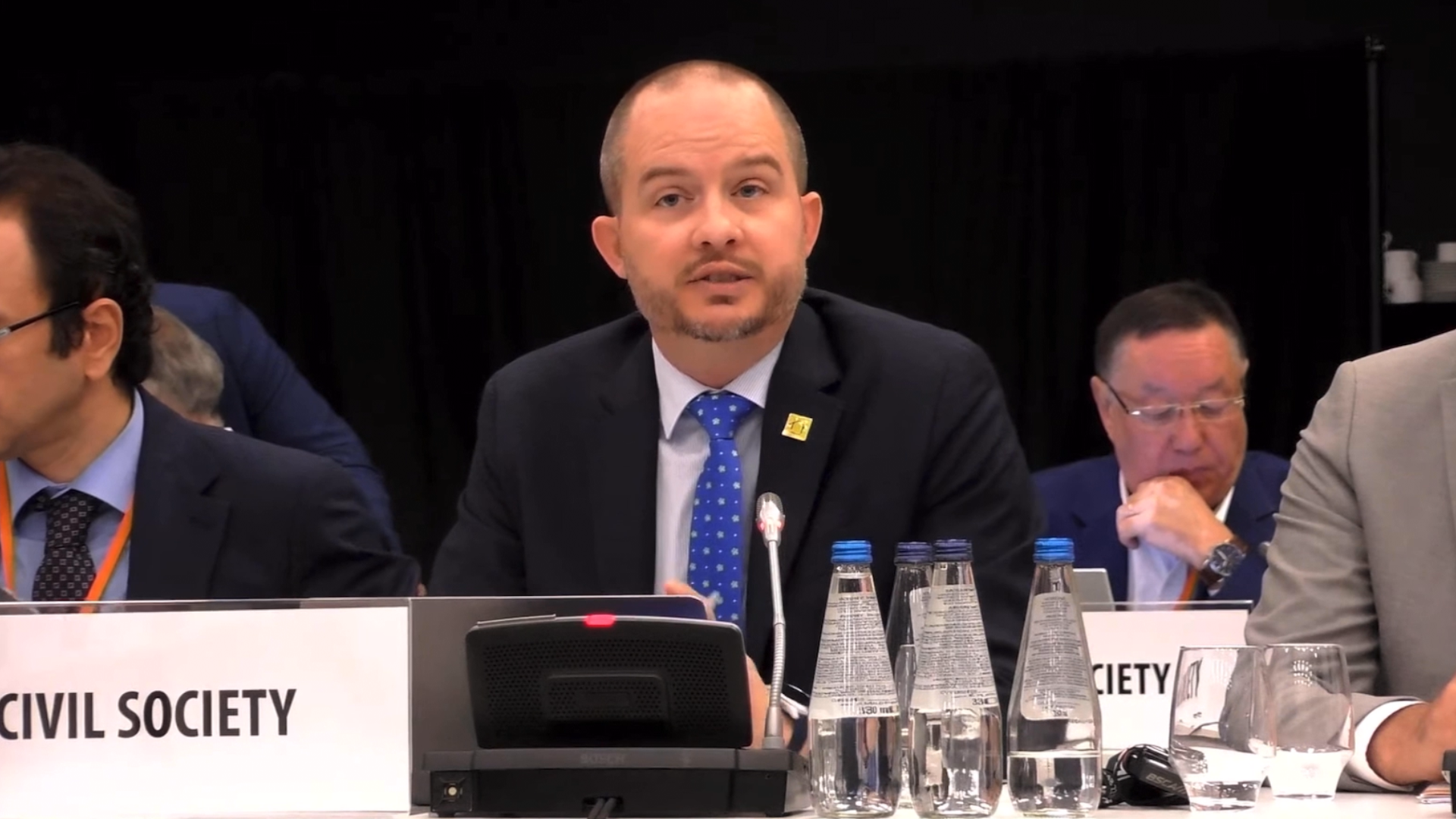Warsaw Human Dimension Conference – Democratic Institutions
HRHF oral intervention
3 October 2023
Check against delivery.
Civic space is the environment which enables civil society to participate meaningfully in the political, economic, social, and cultural life of their communities. Across the OSCE, civic space is being eroded, with long-lasting repercussions for democracy, democratic institutions, and the protection and promotion of human rights.
In Azerbaijan, we are deeply concerned by the arrest, detention, and harsh conditions of custody faced by civic activist and academic Gubad Ibadoghlu. His arrest and alleged mistreatment are a clear illustration of Azerbaijani authorities’ misuse of the criminal justice system as a reprisal for criticism and dissenting voices. We are equally concerned about the detention of at least five anti-war activists last month for exercising their freedom of expression.
In Serbia, the Independent Journalists’ Association of Serbia recorded 137 cases of attacks against journalists in 2022 alone. The number of cases of Strategic Litigation Against Public Participation, or SLAPPs, have been on the rise in the last several years. In 2021 and 2022 there have been 40 lawsuits that can be characterized as SLAPPs.
In Armenia, we are very concerned by the growing number of credible reports of police violence, including torture, against citizens, a situation which a number of Armenian civil society organisations have warned is “systemic”. This violence, including torture, remains inadequately investigated and leads to a growing and deeply problematic sense of impunity as internal police investigations fail to deliver impartial results.
In July in Georgia, a violent mob broke into the privately owned open space where the Tbilisi Pride festival was to be held. The ensuing violence was part of a deeply worrying trend in Georgia in which the authorities embolden far-right groups by failing to deter and punish their homophobic violence unleashed against LGBTQI community, their defenders and supporters, and media. This followed the introduction of a so-called “foreign agents” bill earlier this year to both restrict the ability of civil society to raise funds while stigmatising and ostracising human rights defenders and their organisations for their human rights work.
Just last week in the Republika Srpska in Bosnia and Herzegovina, the government introduced an “Agents of Foreign Influence” bill, a counterpart of the Georgian legal initiative The bill is seemingly designed to further obstruct and stigmatize the legitimate work of human rights defenders, activists and civil society organizations, with a serious damaging effect on the right to freedom of association in Republika Srpska.
Here in Poland, journalists are facing legal harassment, with many legal actions initiated by public institutions, state-owned companies, and public officials. Journalists face threats to their safety, especially while covering demonstrations. For instance, there have been reports of police using force against journalists who are clearly identifiable.
Madame Moderator:
I’d like to ask the panelists: What concrete steps can be taken by participating States to respond meaningfully to the very real efforts to limit or erase space for civil society across the OSCE region?
Thank you.





